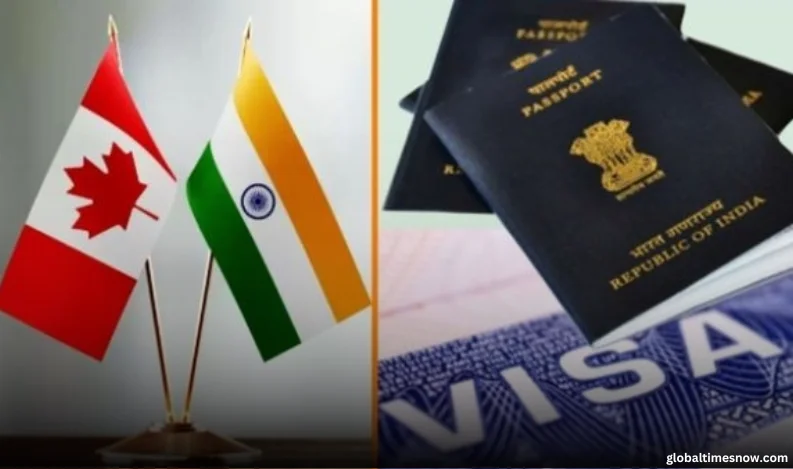Ottawa, Canada - Canada’s new visa and immigration regulations, which came into effect in February 2025, have raised serious concerns for Indian students, workers, and migrants. The revised policies grant sweeping discretionary powers to border officials, allowing them to reject, alter, or cancel visas and permits at any time, a move that could create uncertainty for thousands of international applicants.
Under the updated Immigration and Refugee Protection Regulations, Canadian border officials now have the authority to deny or revoke temporary resident visas (TRVs), electronic travel authorizations (eTAs), work permits, and student visas without prior notice, if they determine that the individual may not leave Canada upon the expiry of their authorized stay.
Heightened Scrutiny for Indian Students and Workers
These new regulations are expected to impact Indian nationals significantly, given that India is one of the largest contributors to Canada’s student and skilled workforce population. According to official data, more than 4.2 lakh Indian students are currently pursuing higher education in Canada, making them the largest group of international students. Additionally, thousands of Indian professionals and workers rely on temporary work permits and visas to stay and work in the country.
Now, with border officers having full discretion to refuse or cancel permits, students and workers may face an increased risk of deportation if their visa status is altered.
"If an officer is not convinced that an individual will leave Canada after their permitted stay, they have the authority to deny entry or revoke a visa— even while the person is already in the country," a Canadian immigration official stated.
What Happens If a Visa or Permit is Canceled?
According to the new regulations, if an individual’s visa is rejected at the port of entry, they will be sent back to their home country immediately. If a permit is revoked while they are already studying, working, or residing in Canada, the affected person will receive an official notice to leave the country by a specified date.
This uncertainty has caused widespread concern among Indian students, workers, and their families, particularly since no clear provisions have been outlined regarding refunds for education fees, housing rents, mortgages, or loans in case of sudden deportation.
Impact on Indian Tourists and Business Travelers
Apart from students and workers, Indian tourists and business travelers— who visit Canada in large numbers— are also expected to be affected by the new visa restrictions.
- In the first half of 2024, Canada issued travel visas to more than 3.6 lakh Indian nationals.
- In 2023, Indian tourists accounted for 3.4 lakh visitors during the same period.
With stricter border controls, visa rejections for short-term travelers may also increase significantly, impacting both tourism and business relations between India and Canada.
A Tougher Visa Landscape for Indian Aspirants
The latest visa restrictions follow a series of measures taken by Canada to tighten immigration rules. Just three months ago, in November 2024, the Canadian government shut down the Student Direct Stream (SDS) visa program, which was a preferred route for Indian students looking for faster visa processing in exchange for an upfront financial guarantee.
With stricter visa policies, increased uncertainty, and greater powers granted to immigration officials, Indian students and workers aspiring to move to Canada may now face unprecedented challenges in securing their stay.























